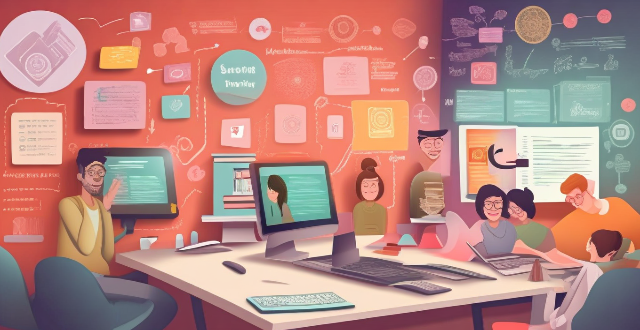Adaptive software in education offers personalized learning experiences, enhancing student engagement, academic performance, and key skill development. It supports inclusive education, prepares students for future challenges, and makes learning more efficient and effective.

Personalized Learning through Adaptive Software: Benefits for Students
In the evolving landscape of education, personalized learning has emerged as a powerful tool to cater to the diverse needs of students. Adaptive software, at the forefront of this revolution, harnesses the capabilities of technology to deliver tailored instruction and feedback. Here's how personalized learning through adaptive software benefits students:
Enhanced Learning Experience
- Customized Pace: Each student progresses at their own speed, ensuring no one is left behind or held back unnecessarily.
- Tailored Content: Lessons are adjusted based on individual performance, interests, and learning styles, making education more relevant and engaging.
Improved Academic Performance
- Immediate Feedback: Students receive real-time corrections and guidance, promoting faster learning and understanding.
- Reinforcement Learning: The software focuses on areas where students struggle, reinforcing concepts until mastery is achieved.
Increased Efficiency and Effectiveness
- Data-Driven Decisions: Teachers can use insights from the software to make informed decisions about teaching strategies and curriculum design.
- Resource Allocation: Limited resources can be directed towards students who need extra help in specific areas.
Development of Key Skills
- Self-Directed Learning: As students navigate personalized content, they develop critical thinking and problem-solving skills.
- Digital Literacy: Interacting with adaptive software enhances students' comfort and proficiency with technology.
Greater Engagement and Motivation
- Interest-Based Learning: Curriculum that aligns with students' interests significantly boosts motivation and engagement.
- Gaming Elements: Many adaptive platforms incorporate game-like features that make learning fun and rewarding.
Support for Inclusive Education
- Special Needs Accommodation: Personalized pathways can accommodate students with special needs, providing them with an equal opportunity to learn.
- Language Support: For non-native speakers, adaptive software can offer language support and scaffolding to aid comprehension.
Preparation for the Future
- Lifelong Learning Skills: Personalized learning cultivates habits of self-education that are essential in today's rapidly changing world.
- Adaptability: As students experience varied learning paths, they become more adaptable to change, a crucial skill for future success.
Conclusion
The integration of adaptive software in educational settings is not just a trend; it's a step towards a more equitable and effective learning environment. By embracing personalized learning, we empower students to take control of their education, tailoring it to their unique needs and aspirations. This approach prepares them not just for academic success but also for a future where adaptability, self-direction, and continuous learning are paramount.